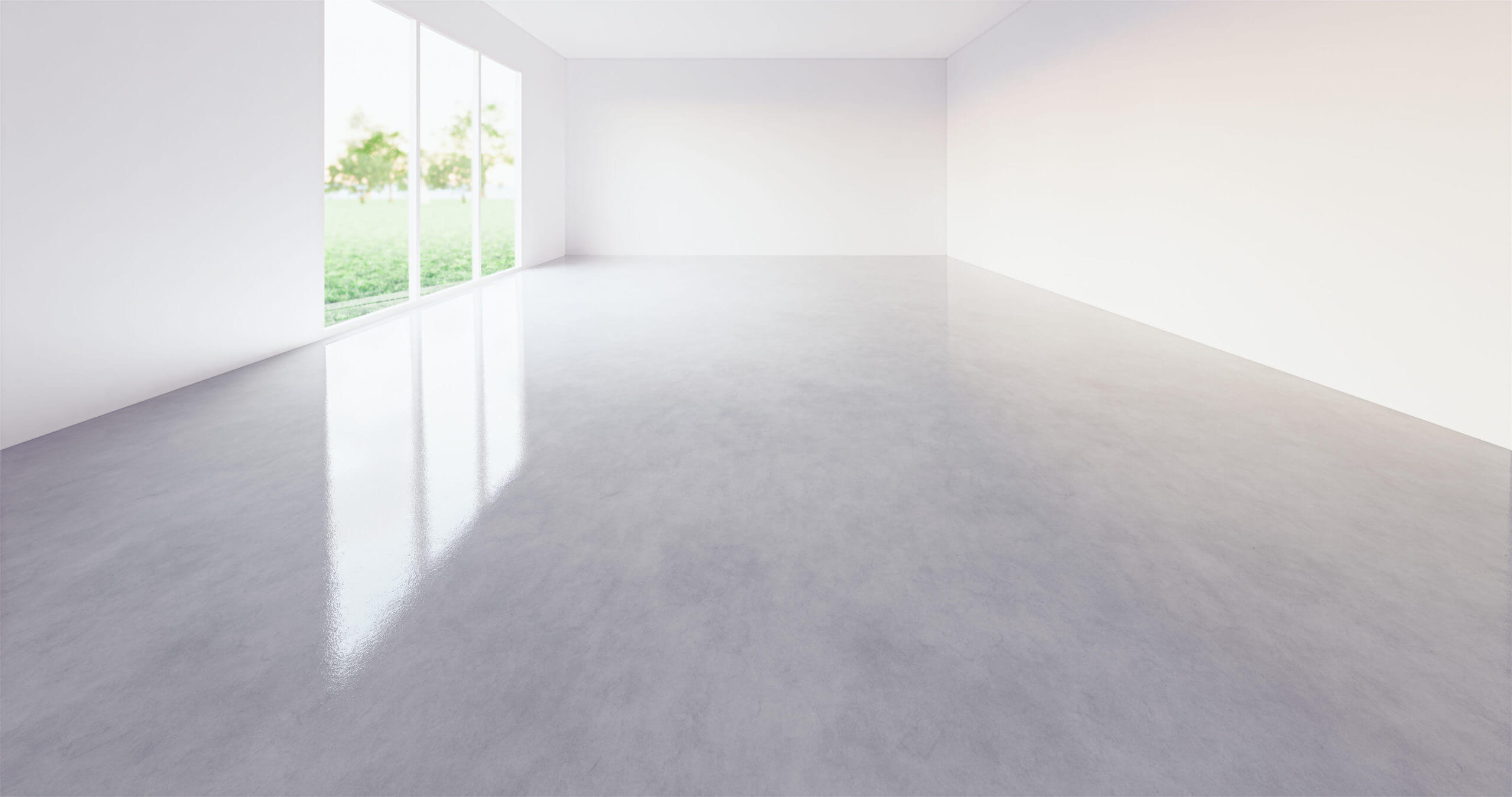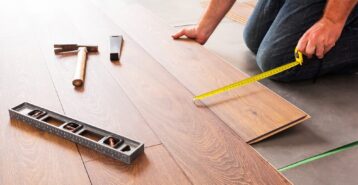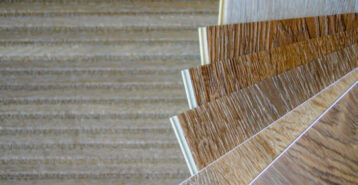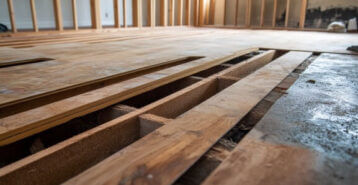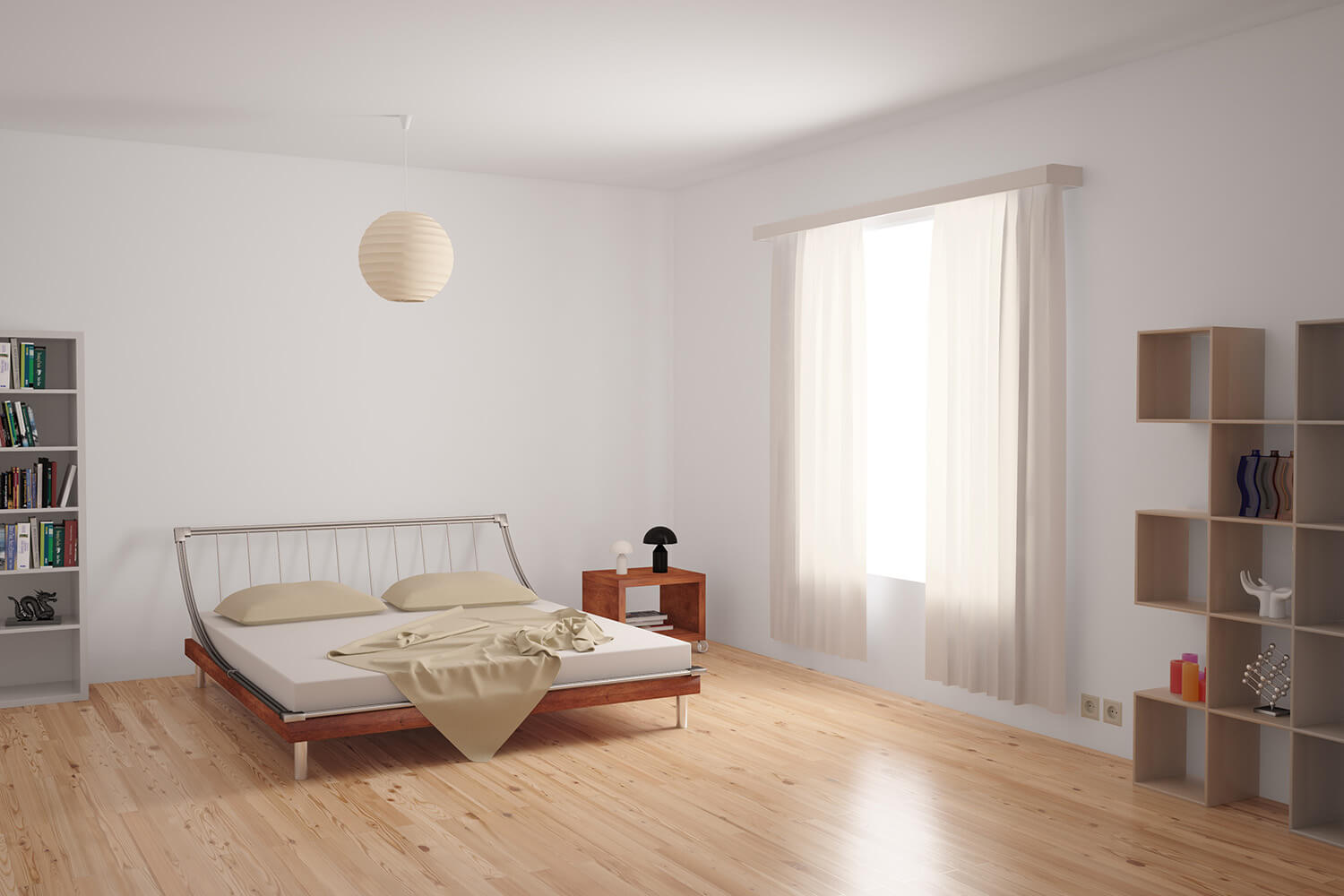Concrete Flooring Installations
Homes built on concrete slabs are common throughout the U.S. The concrete in most of those homes is covered with carpet, tile, hardwood or another popular type of flooring. But a growing segment of homeowners are now choosing to use mechanically polished concrete as their finish flooring.
Polished and stained concrete has long been used in large commercial properties such as warehouses, as well as smaller strip centers with restaurants and boutique retailers due to the many benefits of concrete flooring. These include unmatched durability and environmental sustainability, along with eye-popping aesthetics.
Modernize created this introductory guide to concrete flooring so homeowners can learn more about its benefits, as well as how to make the switch from standard flooring to concrete. We’ll even help you find a flooring contractor in your area that can help you with all aspects of the job, if you decide it’s time to make the switch to concrete.
Is Concrete One of the Top Modern Flooring Ideas?
In a Modernize survey conducted in September of 2023, more than 2,500 homeowners indicated they planned to install new flooring in the next 12 months. Of those, 1% of respondents planned to choose concrete.
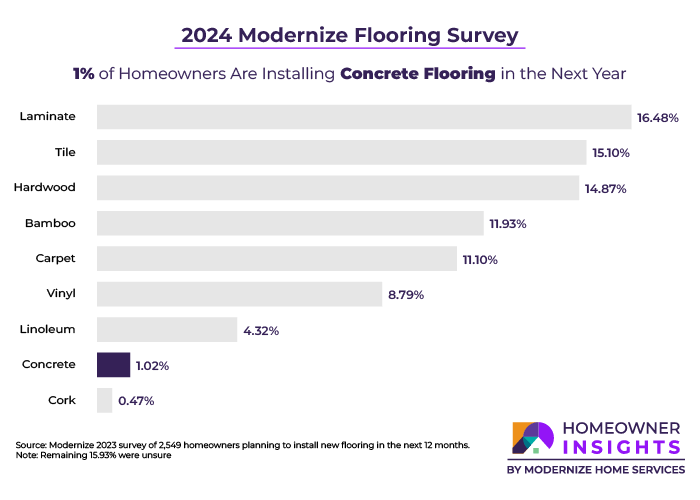
4% of all homeowners surveyed indicated they already had concrete flooring their home.
Are Concrete Floors Right For Your Home?
In new homes, it is easier to opt for concrete flooring during the pre-construction phase, since it can become part of the original design of the residence. Homeowners who want to remodel and make the switch from their current floors to concrete flooring can rest assured the answer is yes.
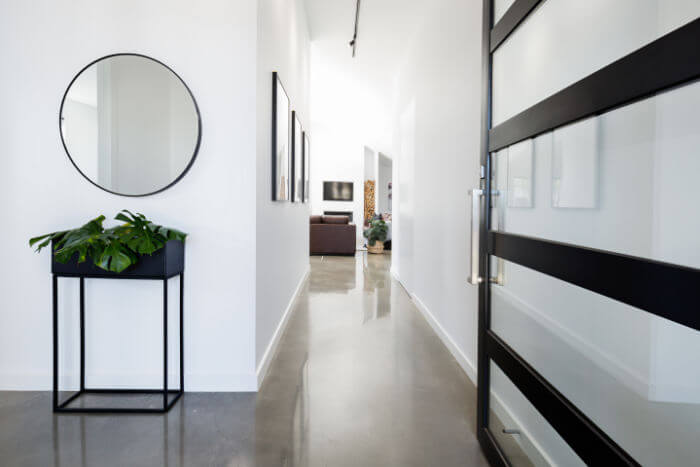
In some cases, contractors can remove your old flooring to expose the concrete subfloor and then polish or stain it. Alternatively, depending on the condition of existing flooring, they may be able to simply cover it with a decorative concrete overlay.
There are a few things to know before jumping into the job. When a contractor strips off your old floors, the substrate likely will need grinding or patching to ensure a perfectly level floor. Also, if your contractor has to pour a micro-topping or thin self-leveling concrete overlay, he or she likely will have to raise all the baseboards. This is because the concrete will increase the height of the existing floor.
Making the switch to concrete floors is no simple task. Your home will likely be a construction zone for a week, and possibly longer. That said, a professional contractor can help you get the job done, and there are many reasons to consider installing concrete in your home.
How Much Does Concrete Flooring Cost?
Concrete is considered mid-range in terms of flooring installation pricing. While it tends to be more expensive than carpet, it is usually more affordable than hardwood floors. Concrete is also one of the most durable, high-value flooring options, as it can last for a hundred years or more!
Cost per square foot
You can expect to pay an average of $3 to $8 per square foot when choosing concrete. Note that there are various types and styles of concrete to choose from, hence the wide price range. There are some higher-end concrete options that may cost $10 per square foot or more, depending on the customizations and treatments.
For example, polished concrete will likely fall on the higher end of the pricing spectrum, costing closer to $10 per square foot. Concrete floors that look like hardwood typically cost between $3 and $6 per square foot, which is significantly cheaper than paying for real hardwood.
Additional costs
Keep in mind that concrete flooring installations often come with additional costs, depending on the look you are going for. It is wise to expect higher costs if you plan to paint, seal, stain, or polish your new concrete floors. Here is a brief list of additional costs to look out for:
- Underlayment. If your flooring requires cement underlayment, this can cost an additional $2 to $3 per square foot.
- Surface repairs. If your home’s concrete floors require repairs, expect $2 per square foot of repairs needed.
- Grinding. Some concrete floors require grinding to make them appear polished. Grinding can cost between $1 and $4 per square foot.
- Stains. Adding custom stains to concrete can cost between $2 and $10 per square foot, depending on how many layers are added.
- Paints and sealants. Expect around $1.50 to $3 per square foot if you add paints and sealants to the concrete.
Where Does Concrete Work Best?
Concrete flooring works better in some areas of the home than others. For instance, you likely would not want it in your bedroom, due to its hardness. However, there are many places in the home where it’s a natural fit. These include:
- Kitchen. This is often the most highly trafficked area of the home. Concrete’s incredible durability, along with its lack of grout lines, make it an excellent choice for kitchens.
- Bathrooms. Concrete resists moisture, making it a good choice for bathrooms. It’s unsurpassed design flexibility also offers the ability to create uniquely customized bathroom floors.
- Foyer or entryway. Few areas of the home see more foot traffic than your entryway. Not only is concrete easily cleaned, but you can create a strong visual impression whenever you enter your residence.
- Basements and garages. If you want to refinish your basement or garage, concrete is an excellent choice for these rooms. These areas usually already have slabs poured that can be stained or sanded and polished to make them more visually appealing.
Advantages of Concrete Flooring
Concrete flooring offers many unique advantages. One reason is that concrete is often an aspect of the construction process itself, rather than a feature added after the home or building is constructed.
A few additional key advantages of concrete flooring include:
- Durability. Concrete is among the most durable flooring choices available. When poured and cured correctly, concrete likely will outlast all other building materials. Residential microtoppings are typically between 3,000 and 6,000 pounds per square inch – an incredible level of hardness.
- Low maintenance. When sealed, concrete is extremely resistant to everyday wear, as well as accidents from spills, stains or impact. It is also easily cleaned by sweeping, vacuuming or mopping.
- Energy efficiency. Concrete has excellent thermal mass, which is its ability to store heat. Natural sunlight penetrating through windows warms the flooring, and concrete’s excellent conductivity allows this heat to spread across the slab. The process works in reverse with shade.
- Customization. There are nearly limitless design options in regards to color, design, patterns and textures. Micro toppings are usually poured up to ½-inch thick and offer incredible visual variety. Polishing concrete, meanwhile, exposes different levels of aggregates (the rock inside the concrete mix) depending on the level of sanding and polishing.
Disadvantages of Concrete Flooring
Like all types of flooring, concrete has a few potential drawbacks. These include:
- Hardness. When it comes to comfort and warmth, concrete can be quite harsh — but no less so than tile or stone flooring. Area rugs are important to provide some much needed softness.
- Resealing. Sealing enhances concrete’s color and also adds a glossy sheen. You may need to regularly reseal your concrete flooring to preserve any decorative treatments, revitalize the sheen, and protect the floor from the possibility of staining.
- Cold. Like tile and stone, concrete can feel quite cold in winter months. However, radiant heat systems, though costly, can make your floor feel toasty and inviting.
- Cracking. While concrete is nearly impervious to everyday wear, it can crack over time due to settling, changes in temperature and similar stressors.
How to Find a Flooring Contractor
With a combination of decorative treatments such as graphics, borders, stenciling, sawcuts, stains and dyes, a good flooring contractor can make your home look like no other. A reliable contractor can alleviate a great deal of stress as you navigate the installation process, as well as help ensure the job is done correctly.
Modernize helps homeowners connect with and vet professional contractors to complete their flooring installations, from budgeting to preconstruction, to finished product. If the time has come to say goodbye to your old flooring and make the switch to concrete, use our search tools to find local concrete flooring contractors in your region.
Compare top-rated flooring pros in your area.
Read real homeowner reviews, explore qualifications, and view promotions. Modernize makes it easy to browse professionals and find one that will be perfect for your project.
